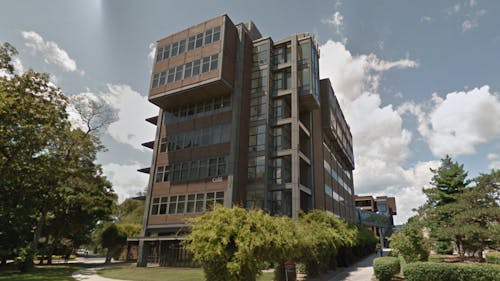National Science Foundation awards $1.7 million to U. computer science research

Professors in Rutgers' Department of Computer Science were granted $1.7 million by the National Science Foundation (NSF) alongside colleagues from the University of Oregon and the University of Massachusetts—Amherst for their research on cyberinfrastructure and natural disaster prevention.
Sudarsun Kannan, an assistant professor in the Department of Computer Science, said he is the lead principal investigator for this project that aims to analyze computer systems monitoring natural disasters.
"There are not many projects that actually monitor the systems that are monitoring, " he said. "There are sensors and cameras that … spread across the entire forest and other places ... (and) these systems can fail at any time."
The researchers aim to develop technology that watches the monitoring systems to see if they are failing and input failsafe measures that can take action as needed, he said.
Kannan said the existing monitoring systems, including sensors and cameras, are vulnerable to physical and cyber attacks and are not safeguarded during natural disasters and, therefore, cannot provide accurate information.
"If there is a wildfire that is happening, you cannot expect them to be stable," Kannan said. "So there needs to be something that is essentially monitoring the systems — whether they're functioning, whether they have failed or (if) they are even under some security attacks because they are in the wild."
The failure and unpredictability of these vulnerable natural disaster security systems can cause significant damage in regards to habitat destruction, debilitating economic costs and can even threaten human life.
Often, grants fund computer science projects that focus on a technical aspect, though this project will be unique as it combines technology and environmental sciences, according to Kannan.
Ulrich Kremer, a professor and chair of the Department of Computer Science, said the NSF asked the research community for proposals to look into pressing matters like this one. Then, research entities submitted their proposals on what research they will conduct and a budget for how much of a grant they request.
"A research proposal typically entails a description of what research they want to do, why this research is novel (intellectual merit), what impact the results of the research will have (scientific, economic and social impact), why the (principal investigator) and (co-researchers) are qualified to do the research and a budget," Kremer said.
Kannan said his project's success relies on collaboration not only between institutions but also specifically with the help of graduate, undergraduate and even high school students interested in working on this project.
"We want innovation across different aspects ... which means we are going to start working with lots of students across different boundaries right now.," he said. "There are already, at Rutgers, around two to three undergraduate students who are leading the effort … we have interest working with more students, either during the regular semesters or during (the) summer."



